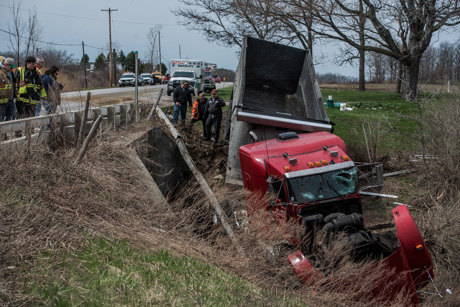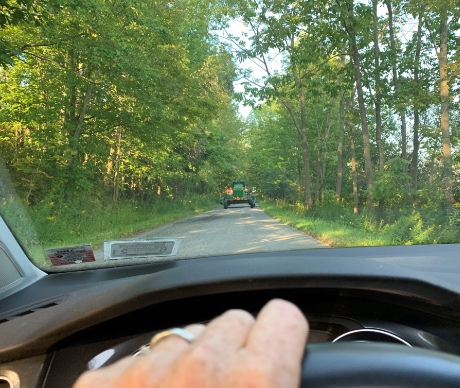UPDATED: Farmers file lawsuit to temporarily halt farm labor law to get clarity, ensure compliance
Press release:*
A coalition of New York State dairy and vegetable farms has filed a lawsuit in U.S. District Court in Western New York seeking a court order that would temporarily halt the implementation of the Farmworkers Fair Labor Practices Act on Jan.1. New York’s farmers and employees are seeking clarity to ensure they are in compliance with its requirements.
The group, which includes the Northeast Dairy Producers Association (NEDPA), the New York State Vegetable Growers Association (NYSVGA), and individual farmers across the state have been working with state officials for months, leading up to and following the legislature’s approval in June of a measure that was then signed into law by Governor Andrew Cuomo in July.
*(Update) In Genesee County, the coalition includes Torrey Farms, a dairy farm in Elba that's been in operation since 1803, and MTy Acres, which is represented on the Board of Directors of NYS veg growers.
Prior to filing the lawsuit today, representatives of NEDPA and the NYSVGA worked into the evening on Friday in an effort to seek a resolution that would bring clarity to the matter. In addition, they maintained open lines of communications and were willing to continue the dialogue throughout the weekend.
In fact, prior to being voted upon and signed, a statewide advocacy effort was conducted by concerned agricultural interests that repeatedly identified flaws within the legislation that needed to be addressed to avoid unintended consequences of the state action.
More specifically, the lawsuit outlines the challenges facing New York’s agriculture community, and identifies several key issues that require modification.
- As currently written, the Act’s definition of “farm laborer” includes supervisors, farm owners and family members of farm owners. This places farms in a contradictory or “Catch 22” position. If supervisors, owners and family members are classified as farm laborers, they have the right to engage in collective bargaining with other employees. However, if supervisors, owners and family members are also agents of the farm business, they must not engage in conduct that would discourage union concerted activity, assist in the formation of a union, or otherwise violate the rights of farm laborers.
- The Act also conflicts with Section 14(a) of the National Labor Relations Act (“NLRA”). The Act includes supervisors as part of the group of farm labors who may engage in concerted activities, but the NLRA expressly prohibits states from adopting such legislation, and so the law is preempted by federal law.
- Because the Act includes supervisors, owners, and family members for purposes of its hour restrictions and overtime pay requirements, farms must reclassify the way they engage these individuals, and this compounds the conflict as farmers endeavor to implement the law.
- As a result, if a farm decides to classify its supervisors, owners and family members as farm laborers, it will result in a violation of the Act’s collective bargaining provisions. On the other hand, if a farm takes the position that supervisors, owners and family members are not farm laborers, the farm may be subjecting itself to criminal and civil penalties by violating their rights as farm laborers and by violating the hour restrictions and overtime pay requirements.
John Dickinson, Northeast Dairy Producers Association, and co-owner of Ideal Dairy in Hudson Falls (Washington County), said, “We greatly appreciate the efforts of our employees; they are invaluable to our success and we want to do what’s right for them. We have had productive interactions with state representatives and provided feedback on the lack of clarity this law provides, however we are asking for a pause to allow necessary changes to be made.
"The lack of guidance the dairy community is receiving is causing unnecessary stress on farms, agribusinesses, and families across the state. We have every intention of abiding with this law, but our farms and employees are struggling with implementation due to unclear and conflicting definitions as it is currently written.”
Brian Reeves, president of the New York State Vegetable Growers Association, and owner of Reeves Farms in Baldwinsville (Onondaga County), said,“We have been working for months in a constructive manner to bring clarity and fairness to a law that had significant problems due to ambiguity and unfairness to employees and farm families across New York.
"Today, we are simply seeking a temporary pause to the implementation of this law, to avoid harm to our farms and our employees, while the Governor and Legislature correct the ambiguities.”




